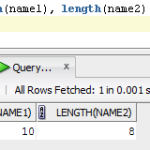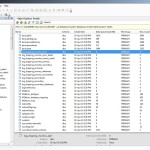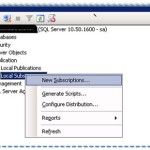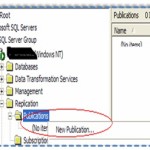SQL – Index
UNIQUE
Creates a unique index on a table or view. A unique index is one in which no two rows are permitted to have the same index key value. A clustered index on a view must be unique. The Database Engine does not allow creating a unique index on columns that already include duplicate values, whether or not IGNORE_DUP_KEY is set to ON. If this is tried, the Database Engine displays an error message. Duplicate values must be removed before a unique index can be created on the column or columns. Columns that are used in a unique index should be set to NOT NULL, because multiple null values are considered duplicates when a unique index is created.
CLUSTERED
Creates an index in which the logical order of the key values determines the physical order of the corresponding rows in a table. The bottom, or leaf, level of the clustered index contains the actual data rows of the table. A table or view is allowed one clustered index at a time. For more information, see
A view with a unique clustered index is called an indexed view. Creating a unique clustered index on a view physically materializes the view. A unique clustered index must be created on a view before any other indexes can be defined on the same view. For more information, see Designing Indexed Views.
Create the clustered index before creating any nonclustered indexes. Existing nonclustered indexes on tables are rebuilt when a clustered index is created.
If CLUSTERED is not specified, a nonclustered index is created.
NONCLUSTERED
Creates an index that specifies the logical ordering of a table. With a nonclustered index, the physical order of the data rows is independent of their indexed order.





